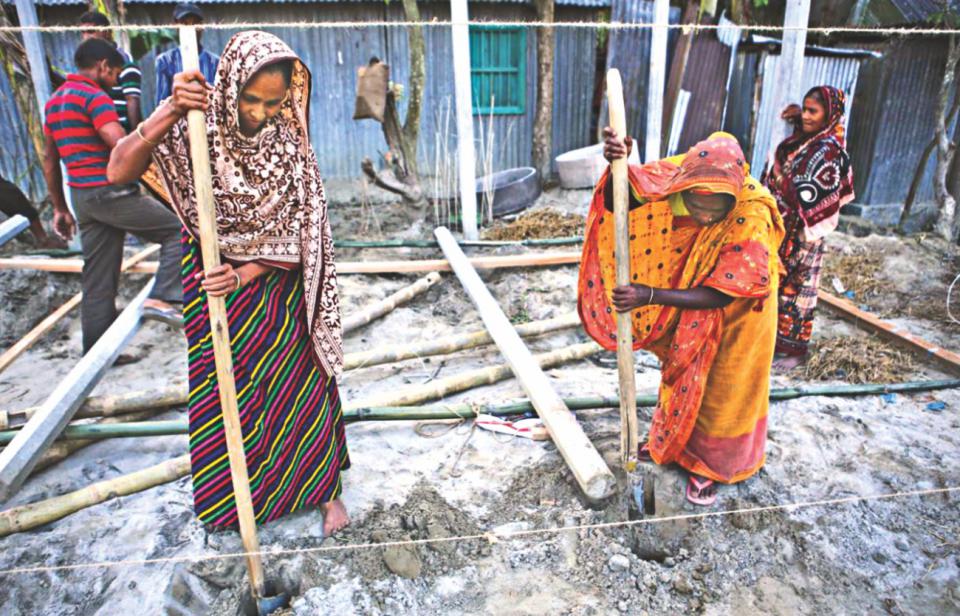ASM Shahidul Haque
A development worker
Email: shahidulhaque72@gmail.com
This is part two of a series of blog “A General Outline of Evolution of NGO and Development Work in Bangladesh”. Read previous parts here.
There were only few NGOs working in Bangladesh (the then East Pakistan) before independence in 1971. These NGOs were mostly supporting cyclone hit people of coastal regions with rescue, relief and urgent lifesaving activities. The presence of development organizations started increasing during independence war and increased considerably after the end of war. These NGOs were involved in different types of activities but the overall goal can be described as ‘community development and empowerment’. The focus of these NGOs were on people living on embankments (Jamuna-Tista-Brahmaputra) of mostly Northwestern part of Bangladesh who were constantly suffering from flooding and river erosion. People were getting poorer, loosing cultivatable lands, households, livestock and other valuable assets. Due to lack of financial ability, education and health services, people were starving and struggling to survive on their own. The nascent country also did not have the mechanism and ability to support this destitute people that were about 30% of the total population.
NGOs stepped in to support the government to empower these vulnerable people. Some NGOs provided support to women victim of war and tried to develop their capacity. Other NGOs, particularly in Northern part, were working with flood and erosion affected people. While at the same time NGO work in the Southern part was mostly limited in disaster management and relief work. There were asset transfer activities, adult literacy programs, group development for income generating activity as a form of small construction and maintenance work. The NGOs also contributed immensely in creating jobs for modestly educated young male and particularly female. This was a great opportunity for many rural male and female to get a decent employment and contribute in community mobilization and capacity development. Many young women got employment at NGOs and were seen riding bicycles and even motorcycles. It created huge impact in redefining role of women in a conservative society. However, this process was not that easy in the Southern part of Bangladesh where social stigma and barriers were stronger. NGO work and female employment was accepted easily in the Northern part of Bangladesh, as this part was less conservative, compared to other areas.
These young vibrant female dominated workforce helped NGOs enter into household and directly to female member of the household. Sensitive issues like early marriage, birth control, reproductive health – generally termed as ‘family planning’ issues could be addressed more efficiently than expected. The success was evident relatively quickly. Gradually NGOs could touch upon primary education, family health and sanitation. Due to NGO work, birth rate started to decrease, more enrolment at primary schools could be observed and there were signs of improvement in areas like access to health services. So, NGOs at initial stage targeted people at remote disaster prone areas, started to work with ultra-poor to reduce their vulnerability, by supporting with assets, by providing relief at the time natural disaster and by gradual development of their capacity related with improving education and knowledge on basic needs. Still there was shortage of food in many areas for few months in a year. So, transfer of improved agricultural technology and knowledge became essential to encourage more food production in lean period, sometime termed as ‘monga’ period when many household suffered from lack of rice and purchase power. NGOs thus just after independence gradually worked with vulnerable families, communities and local government to build their capacity in terms of making them stronger to face challenges with better knowledge, education, awareness and access to health services. Thus NGOs at initial stages could design development project with overall goal of ‘empowering the rural poor’ of Bangladesh.
(I wish to get reader’s feedback. I also hope to pick another specific topic from my next blog.)



